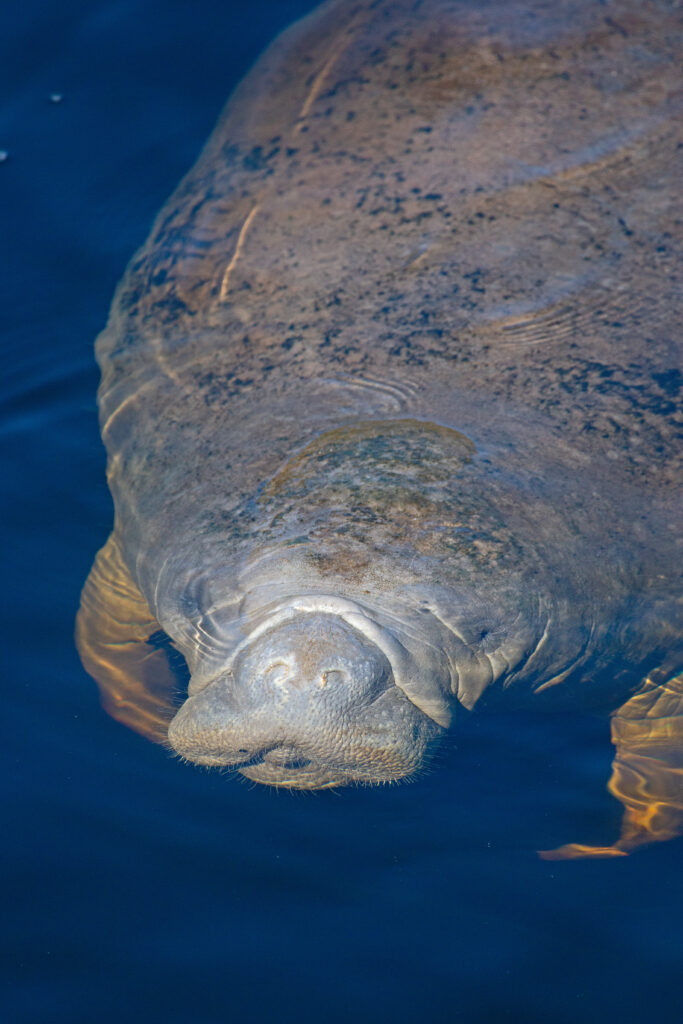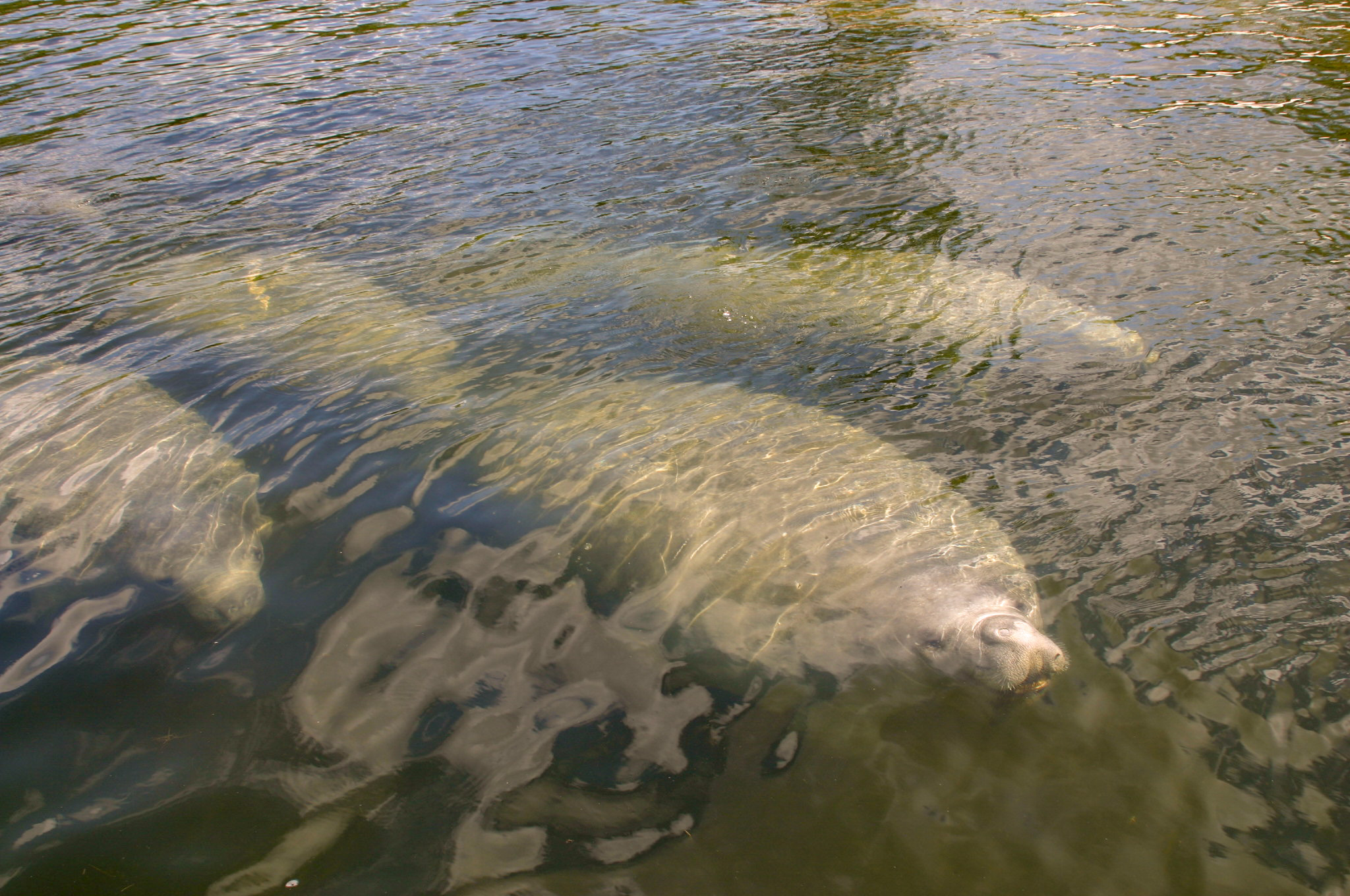Go slow, look out below for manatees
Watching for manatees while boating is always important and spring is a particularly important season for boaters to go slow and lookout below for the slow-moving mammals as they naturally disperse from their winter refuges.
Manatees overwinter in Florida springs, power plant discharges and other warm-water sites, relying on water that is warmer than 68 degrees Fahrenheit. As spring brings warmer temperatures, manatees gradually disperse from their winter habitats and are more likely to be in rivers, canals and nearshore waters.
Although adult manatees are large, spotting them in the water can be challenging. Going slow and looking out below helps boaters and personal watercraft users better spot manatees that might be in the area. People on the water can help manatees by wearing polarized glasses, following all manatee protection zones, keeping an eye out for visible snouts or manatee “footprints” — large circles on the water that are indicators that manatees are below the surface, and always giving manatees space.

From April 1 through Nov. 15, seasonal manatee zones require boaters to slow down in certain areas to prevent manatees from being injured or killed by motorboats or personal watercrafts. Boat strikes continue to be a major threat to Florida manatees. FWC law enforcement officers patrol state waters to inform boaters of the seasonal manatee speed zones and take appropriate enforcement actions. Boaters are reminded to abide by the regulatory signs they see on the water. Manatee protection zones are marked by waterway signs and maps of manatee protection zones are available online at MyFWC.com/Manatee by clicking on “Data and Maps.”
As a reminder, manatees are a protected species and it is illegal to feed, harass or harm them. Physically handling a distressed or stranded manatee can cause additional harm to the manatee and could put you at risk of serious injury. Instead, report injured, distressed, orphaned, sick or dead manatees to the FWC’s Wildlife Alert Hotline at 888-404-FWCC (3922) so trained responders can assist.
Resources for boaters, educators and other interested members of the public are available at MyFWC.com/Manatee. What should you do if you see a manatee? The Viewing Guidelines page provides helpful tips on respectfully viewing manatees, additional guidelines for boat and personal watercraft operators, and information on what you can do to help these amazing aquatic mammals.
Are you interested in supporting the FWC’s manatee research, rescue and management efforts? You can purchase a Florida manatee license plate or donate $5 to receive a collectable FWC manatee decal. Both are available from your local Tax Collector’s office.
Spring is an active time for many of Florida’s wildlife species. For more information, visit MyFWC.com/News and click on “Spring Wildlife News.”


Meet the Editor
David Adlerstein, The Apalachicola Times’ digital editor, started with the news outlet in January 2002 as a reporter.
Prior to then, David Adlerstein began as a newspaperman with a small Boston weekly, after graduating magna cum laude from Brandeis University in Waltham, Massachusetts. He later edited the weekly Bellville Times, and as business reporter for the daily Marion Star, both not far from his hometown of Columbus, Ohio.
In 1995, he moved to South Florida, and worked as a business reporter and editor of Medical Business newspaper. In Jan. 2002, he began with the Apalachicola Times, first as reporter and later as editor, and in Oct. 2020, also began editing the Port St. Joe Star.